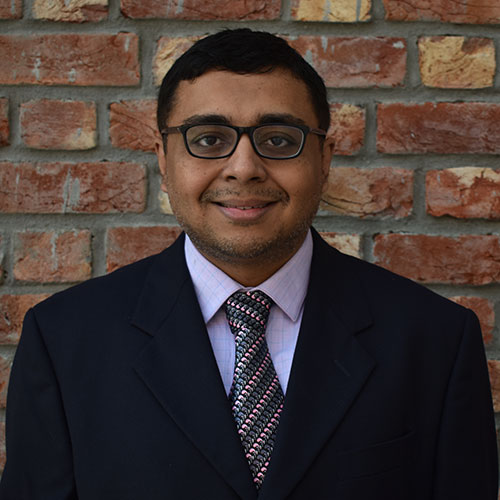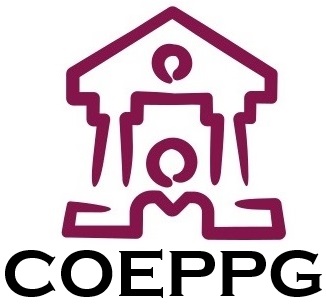
Assistant Professor & Area Chairperson
Organizational Behavior & Human Resource
+91-7900444090(Ext-204)
av[dot]raman[at]iimkashipur[dot]ac[dot]in
Education
- PhD: Sociology of work and organisations /University of Warwick UK
- Masters: MPhil with distinction and MA first class University of Hyderabad India
- Bachelors: Bachelor of Arts Christ College Bangalore, now Christ University
A.V. Raman earned his PhD in the sociology of work, organisations and Industrial Relations from the University of Warwick, Coventry UK in 2013. He has an MPhil degree in Sociology with a distinction and a First Class MA respectively from the University of Hyderabad India, before his PhD. Subsequently, he has taught previously in XLRI and at IIM Kashipur from 2016.
His current areas of academic interest are Trade Unions and Employee-Employer relations drawing upon the ethnographic tradition of field research in Industrial Relations, Labour Process theory and Evaluating Change Management and their outcomes especially when templates of work and HRM practices are implemented in other cultural contexts.
Building upon his longstanding interest in Wittgenstein, the philosophy of language meaning and understanding and Critical management studies he also works on Managerial Subjectivity and contingency, Organisational Ambiguity and Power more so against the background of the fluidity of organisational processes and management in the post-industrial workplace, Language and organisational meaning and managerial repertories, sense-making especially in a transitional HRM context such as India.
With regard to teaching, he has taught a wide constituency of students from the doctoral level to practising managers. The courses taught by him range from Industrial Relations and labour laws at the doctoral and PG level, Power and Organisational Ambiguity and dynamics at the doctoral level, Qualitative research including its theoretical grounding at the doctoral level, to Principles of HRM at the post-graduate level.
- Venkataraman, A., & Krishnan, L. R. K. (2023). Restaurant Waiters: The Precariat Before & During the Pandemic Times in Gujarat. Indian Journal of Industrial Relations, 59(1).
- Venkataraman, A. (2023). Employment Relations Past, Present and Future: Demise or Resurrection in India? NHRD Network Journal, 16(1), 32-50. https://doi.org/10.1177/26314541221134861
- Raman, A. V., & Krishnan, L. R. K. (2021). Invisible Scars: Female Ready-made Garment Workers” Gendered Exploitation. Indian Journal of Industrial Relations, 56(4), 569.
- Venkataraman, A. and Venkataraman, A., 2021. Lockdown & me…!! Reflections of working women during the lockdown in Vadodara, Gujarat‐Western India. Gender, Work & Organization, 28, 289-306. https://doi.org/10.1111/gwao.12572
- Venkataraman, A., & Joshi, C. S. (2020). Who Am I? An Ethnographic Study Exploring the Construction of Organizational and Individual Self among Indian IT Employees. IIM Kozhikode Society & Management Review, 9(1), 72-83.
- Venkataraman, A. (2018). Change management and managerial subjectivity in an Indian commercial vehicle manufacturing plant. International Journal of Employment Studies, 26(1), 62.
- Venkataraman, A. (2015). Evaluating Change Management in an Indian Commercial Vehicle Manufacturing Firm. Management and Labour Studies, 40(1-2), 109-144.
- Book chapters, periodicals and work on Technology, Gender and organisations in progress
Trade Unions and Employee-Employer relations drawing upon the ethnographic tradition of field research in Industrial Relations, Labour Process theory and Evaluating Change Management and their outcomes especially when templates of work and HRM practices are implemented in other cultural contexts.
Building upon his longstanding interest in Wittgenstein, the philosophy of language meaning and understanding and Critical management studies he also works on Managerial Subjectivity and contingency, Organisational Ambiguity and Power more so against the background of the fluidity of organisational processes and management in the post-industrial workplace, Language and organisational meaning and managerial repertories, sense-making especially in a transitional HRM context such as India.
The craft and science of qualitative research which is my specialist domain.
Critical Management studies, organisational theory, leadership and gender and diversity. Human technology interactions in the post-human age against the backdrop of climate change . I frequently review for many leading journals of my field. I have also successfully supervised and guide students within and examine students doctoral dissertations outside IIM Kashipur.
Trained and done several sessions for senior leadership.
I am an experienced trainer who works on senior leadership of corporates and other levels advisor to companies on an ad hoc basis.
I was the Area Chair for Human Resources in the OB division at IIM Kashipur. My involvement in various committees, most recently those tasked with staff recruitment, serves as evidence of my dedication for the institute. I have consistently demonstrated a proactive approach in my contributions to numerous endeavours that are directed towards the progress and expansion of IIM Kashipur. Furthermore, my dedication and purpose towards the institute are evident through my full involvement in its growth and success.
I have has taught a wide constituency of students from the doctoral level to practising managers ranging from CEOs of large private and public companies including the magistrates of the judiciary. Have singlehandedly designed , led directed and delivered several custom made programs in leadership, emotional intelligence, emotional intelligence My students are all over India at various levels who are my best spokesmen
The courses taught by him range from Industrial Relations and labour laws at the doctoral and PG level, Power and Organisational Ambiguity and dynamics at the doctoral level, Qualitative research including its theoretical grounding at the doctoral level, to Principles of HRM at the post-graduate level.






